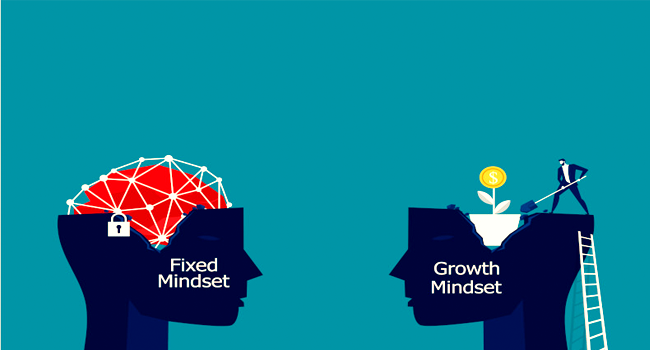Success, in its many paperwork, is an established aspiration. Whether it is achieving professional milestones, private growth, or instructional excellence, the course to fulfillment is frequently much less about innate talent and more about the attitude that fuels one’s adventure. Mindset, an essential psychological construct, affects how people perceive their abilities, respond to demanding situations, and sustain motivation. This essay delves into the concept of attitude, particularly the distinctions between fixed and growth mindsets. It explores how cultivating an increased mindset can considerably enhance motivation and lead to fulfillment.
Understanding Mindset
- They are regularly preoccupied with proving their capabilities instead of improving them, which leads to a worry of failure and a reluctance to take risks.
- Conversely, an increased mindset is the notion that skills and intelligence may evolve through determination, hard paintings, and mastering. People with an increased mindset mindset include challenges, persist in the face of setbacks, and notice effort as a pathway to mastery. They are more likely to take dangers and examine disasters as possibilities to analyze and develop. This adaptive technique fosters resilience and a continuous preference to enhance, which can be vital for lengthy-term achievement.
The Role of Mindset in Motivation
Motivation is the using force in the back of aim-directed conduct. It is what compels people to do so, persevere through difficulties, and obtain their objectives. Mindset plays a pivotal role in shaping one’s motivation. Here’s how:
- Embracing Challenges
- A boom mindset encourages people to embrace challenges instead of shying away from them. When humans trust that their skills can evolve, they may be more willing to take on difficult responsibilities and consider possibilities to enhance their capabilities. This intrinsic motivation to address demanding situations leads to more perseverance and effort, which are important additives to fulfillment.
- For instance, in educational settings, college students with an increased mindset are more likely to take on difficult publications and assignments. They understand that struggling with complex material is part of studying. This contrasts with students who have a fixed attitude, who may avoid hard subjects for fear of disclosing their perceived inadequacies.
- Thomas Edison’s approach to inventing the mild bulb exemplifies this mindset. Despite thousands of failed attempts, Edison famously remarked that he had not failed; however, he had discovered several approaches that did not work. His perseverance, fueled by a boom mindset, in the end, led to success.
- The Importance of Effort
- A constant mindset devalues effort, seeing it as a sign that one isn’t only sometimes proficient. In evaluation, a growth mindset places a high fee on the attempt, recognizing it as critical for improvement and development. This notion of the power of attempt complements motivation because individuals apprehend that their hard paintings can cause tangible development and fulfillment.
- Athletes frequently embody this principle. For instance, Michael Jordan, widely considered one of the finest basketball players of all time, is praised for his relentless work ethic. I’ve failed time and again and all over again in my lifestyle. And this is why I prevail,” underscores the importance of effort and perseverance.
- Adaptability and Resilience
- A boom mindset fosters adaptability and resilience, which are critical tendencies for keeping motivation in the face of changing circumstances. Individuals with a boom mindset are more flexible in their thinking and technique. They are open to new strategies and views, making them better prepared to navigate the uncertainties and challenges that regularly accompany the pursuit of ambitious desires.
- For example, marketers often stumble upon setbacks and disasters. Those with an increased mindset are much more likely to pivot their techniques, analyze from their reports, and persist until they acquire success. This adaptability no longer only sustains their motivation but additionally increases their probabilities of lengthy-term achievement.
Cultivating a Growth Mindset
While the advantages of a boom attitude are clean, developing this mindset calls for intentional effort and exercise. Here are techniques to cultivate a boom attitude:
- Emphasizing Learning over Performance
Shifting the focal point from outcomes to the getting-to-know procedure is essential. Encouraging a curiosity-pushed approach in which the emphasis is on gaining understanding and competencies rather than entirely on grades, rankings, or other overall performance metrics can help foster a growth mindset. This shift may be carried out in instructional settings, places of work, and private improvement practices.
- Praising Effort, Not Talent
The sort of feedback one gets can substantially affect one’s mindset. Praising effort rather than innate expertise reinforces the belief that hard paintings lead to development. For instance, rather than telling a baby, “You’re so smart,” announcing, “I’m genuinely inspired by how difficult you worked on this project,” promotes an increased attitude.
- Normalizing Struggle and Failure
Creating an environment where war and failure are seen as normal and predicted parts of the studying process is critical. Sharing tales of successful people who faced several disasters before achieving their goals can encourage and motivate others to persist despite setbacks.
- Encouraging Risk-Taking
Taking dangers is a crucial component of the boom. This can be facilitated by developing secure spaces for experimentation and by supporting individuals through their screw-ups and successes.
Conclusion
Mindset matters profoundly in the pursuit of fulfillment. The belief in the capability for growth and improvement—imperative to a boom attitude—fuels motivation, resilience, and a willingness to embrace demanding situations. By cultivating a boom mindset, people can enhance their motivation and unlock their full potential, leading to greater achievement in numerous aspects of life. These techniques can help shift one’s attitude from fixed to growth, enabling individuals to approach demanding situations with a tremendous and proactive mindset.
